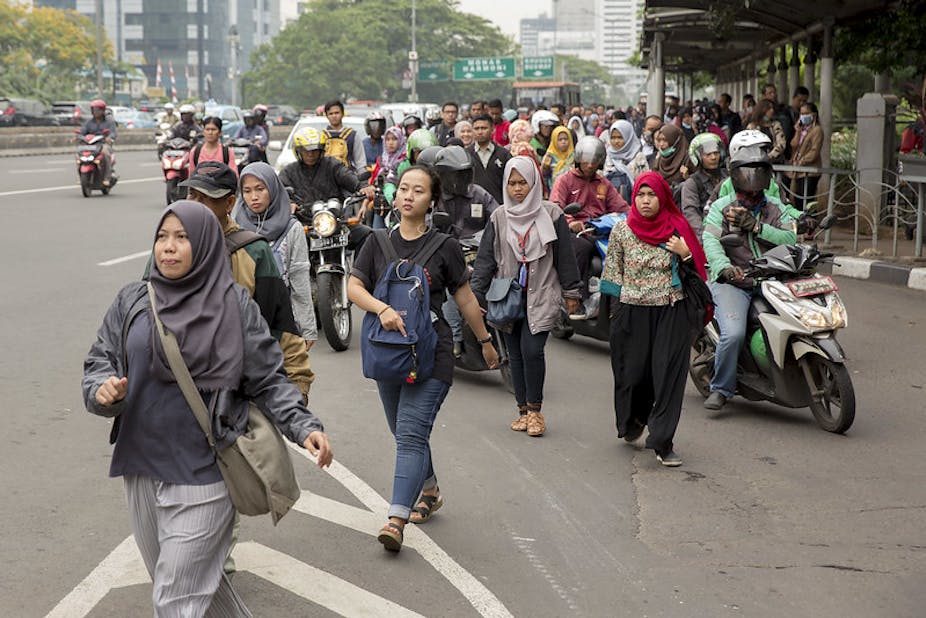This article is part of a series to mark Indonesian Mother’s Day or Women’s Day on December 22.
Women earn less than men in the workplace. It would take 202 years for women to make as much as men according to 2018 data from the World Economic Forum.
I’m a researcher that uses statistics to study economic systems. My research on gender pay gap in Indonesia shows an interesting trend: as women mature and gain work experience, they earn the same or even more than their male counterparts.
My research found that the salary gap between men and women only exists for women under 30 years old.
On average, our 2017 data show that women earn 21.64% less compared to men. However, for those who are 30 years old or older, a man and a woman who have the same age, work experience, education and similar working field tend to earn a similar level of salary.
But many women leave the workforce before reaching that level. Women with children often fall off the career track because the burden of childcare often falls on their hands compared to men. Our research found that only 18.5% of high-level managers in Indonesia are women.
Findings
For my research, I gathered and analysed data from 1,404 white-collar workers and their various details such as salary, age and work experience.
I find that women are earning less than men across all working ages. However, the gap is even higher for women under 30 years old. The difference can rise to 27.60%.
As women get older, the gap in salary between men and women becomes narrower.

The research finds female product managers to earn significantly higher than their male counterparts of the same age and same position, by 23.68% on average.
This shows that once a women hit managerial levels, they can gain the same income level as men.
This phenomenon may relate to a belief that the presence of female directors in a company can increase the company’s profitability.
However, many women don’t climb the career ladder because they feel the need to balance work and child care. They prefer flexible working hours. Some women stop working altogether after having children to spend more quality time with them.
Solution
Policymakers should put more focus on gender equality in the workforce and guide companies on how to deal with it by sharing knowledge about gender equality to both men and women. They need to remember that men and women see the success of gender equality differently. Most men viewed that gender equality has mostly been achieved, while most women think that it is far from being realised.
Policymakers should share more knowledge with companies on how to deal with gender equality, and make sure that the policy does not backfire as it may encourage companies not to hire women in the first place instead.
For example, Australia has been reforming policies to increase gender equality by forcing companies to give more flexibility for working women, but this causes companies to avoid hiring women so that they do not have to deal with the costs caused by the policy.
The Indonesian government can adopt a cultural approach taken by Iceland, the country with the highest level of gender equality. For example, Iceland has been pushing the notion of “strong women” and equality in both rights and responsibilities between men and women. For example, both parents are allowed to have parental leave so that both men and women can share the responsibility of taking care of their children.
A focus on gender equality is crucial, as researches have found a positive relationship between gender equality and economic growth.
Of course, policies are useless unless Indonesian companies start to practice the idea of gender equality in their workplaces. All these approaches must be followed by a cultural shift.
The government can accelerate that shift by periodically sharing knowledge about the positive impact of gender equality on company management and employees with the help of the media. Still, it is important to keep the message objective and not to sound too preachy.
In the end, men and women in companies need to work together to achieve a productive and working gender-equal working environment.


